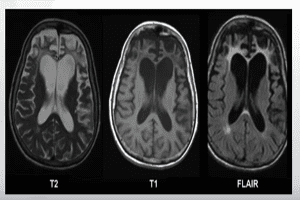
Case Study Dilantin Developed Cerebellar Atrophy. Dilantin (phenytoin) is a medication used to treat patients with epilepsy; it is manufactured by Pfizer. The U.S. Food and Drug Administration (FDA) has approved labeling changes to state that cerebellar atrophy has been reported in patients taking phenytoin. Cerebellar atrophy refers to the degeneration of the cerebellum, an […]

Case Study Dilantin Developed Cerebellar Atrophy. Dilantin (phenytoin) is a medication used to treat patients with epilepsy; it is manufactured by Pfizer. The U.S. Food and Drug Administration (FDA) has approved labeling changes to state that cerebellar atrophy has been reported in patients taking phenytoin. Cerebellar atrophy refers to the degeneration of the cerebellum, an area of the brain responsible for movement, balance, coordination, speech and other functions. Damage to the cerebellum can severely impair these functions.
According to the FDA, cerebellar atrophy appears to occur more frequently when drug levels are elevated or when it is used long-term. Patients with cerebellar atrophy can experience loss of voluntary muscle control, unsteady gait, poor muscle control, trouble speaking or swallowing and other movement related problems.
Cerebellar atrophy can also lead to changes in cognition and mood. There have been reports of problems with executive functioning, which is the type of thinking needed to make plans and attain goals. Irritability, anxiety and depression have also been reported.
Previously, it was thought that the epilepsy itself caused cerebellar atrophy. However, some studies suggest that the use of Dilantin may be a contributing factor. In 2002, a study used magnetic resonance imaging (MRI) to examine the brains of 56 epilepsy patients who took phenytoin, the generic name for Dilantin. Cerebellar atrophy was identified in over 35 percent of patients. Upon statistical analysis, the only factor significantly associated with cerebellar atrophy was the length of time the patient had been taking Dilantin. The authors concluded that while cerebellar atrophy may still be an effect of epilepsy, that factor may be less significant than the length of exposure to phenytoin.
In 2000, a case study was published describing a toddler who took Dilantin and later. He exhibited an unsteady gait and difficulty with speech one year after starting treatment. His doctors discovered that the levels of Dilantin in his blood were higher than suitable for treatment. Researchers attributed this to the fact that his mother gave him pills she cut in half with a knife. He was taken off the medication, but symptoms persisted months later.
The personal injury attorneys at Parker Waichman LLP offer free, no-obligation case evaluations. For more information, fill out our online contact form or call 1-800-YOURLAWYER (1-800-968-7529).


